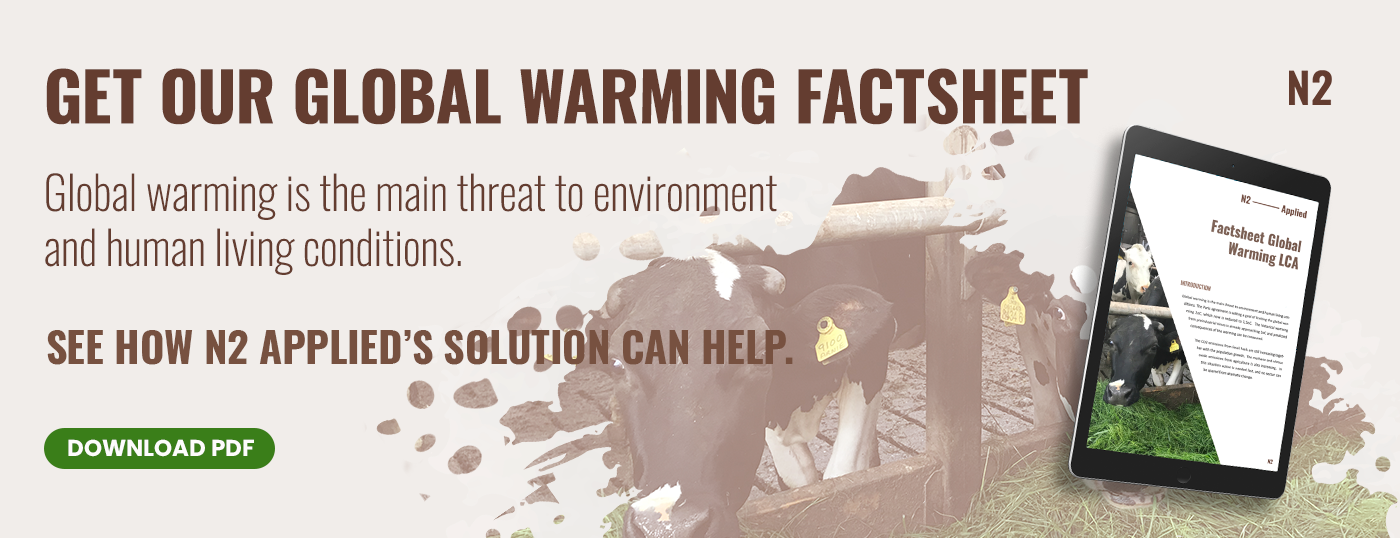In modern history, food production and the aftermath of war have been tragically linked. The market for chemical fertiliser products essentially began after the First World War and boomed after the Second. The invention and centralised production of chemical fertiliser made it possible to feed a fast-growing population.
The outbreak of war, as Russia invaded Ukraine, brought with it a new test.
Our world and its economies are now globalised, so what happens in one country can have a far-reaching impact. Given the war, we have seen warnings of dire shortages of chemical fertilisers straining mankind’s ability to grow enough food. At the same time, fossil fuels have been a focal point, as energy costs - already strained by enormous price hikes in the past year - have become a political football.
It is not just the perfect storm, but the perfect hurricane: fertiliser prices soaring, energy prices also through the roof, a war in an area - Ukraine and bordering parts of Russia - that is key to the global arable production and happening just as farmers should be planting their spring crops. And all coming as the world continues to work through the COVID-19 pandemic. It leaves global food production facing its most perilous situation in living memory.
We need a rethink
The reality is that with markets globalised and food production reliant on chemicals in order to produce enough of what we eat; we have created a new danger for our planet. The way that we feed ourselves and rely on nutrients produced elsewhere is not sustainable - not for the environment or to provide much-needed food security. When pressured, every nation will prioritise food supply for its own population.
The war in Ukraine has brought this into the sharpest focus. With an estimated quarter of all the chemical fertiliser that is used to grow all food being produced in Russia, the rest of the world now faces a severe shortfall that stands to restrict yields. There are calls for a multi-lateral approach by major economies to both solving the problem and becoming less dependent on Russian resources in the future.
In just a few tragic days, our ability to feed the world has been put in real jeopardy. But in recent times, so has our ability to heat homes and power our way of living. As the world continues to pursue ways to reduce man’s impact on our planet, our ability to feed people and provide them with energy - both central to reducing global warming - has been rocked in a matter of weeks. Both energy and food supply now need to be much less dependent on Russia, and we need to find local solutions to such global problems.
The answer to this challenge may sound straightforward, but it is not a quick fix.
It lies in being able to:
- Explore technologies that enable yields comparable to those achieved with chemical fertilisers, and do so with a view to them being rolled out on an industrial scale across food production chains
- Adopt new circular farming methods that utilize nutrients available on the farm and minimise environmental impact. Consider public subsidies to support them during early adoption, so that we can cut emissions of harmful greenhouse gasses and develop techniques that have the twin benefit of fertilising fields. This will mean moving away from the farming models that food production has centred on since after the Second World War
- Accelerate the introduction of effective renewable energy on farms, so that the electricity required to power these advances in technology is commercially viable and does not become the factor that slows our progress towards the two points above
Our business has been researching, testing, and developing the kinds of technologies outlined above for more than a decade, and those technologies offer a solution to the food production pinch created by this war. Now is not the time to look to gain commercially, but it is a time to consider how to become less reliant on fossil-based fertilisers. What we offer is not the whole solution to this food production crisis: it is a pathway that holds enormous promise.
But it will take time for methods to change, and for farmers to trial and adopt such technology at scale.
To accelerate this adoption, we need three things to happen:
Firstly, food producers, their supply chains, technologists and policy-makers who can do much to enable change must be committed to increasing local production, dramatically reducing over-reliance on any one national market and speeding up the rate at which farms harness renewable energy. We must work together closely. We must make it an imperative, not a minor experiment, and continue to focus on it despite the difficult times ahead for food production.
Secondly, we need to consider what financial incentives can be made available to apply these circular farming methods. The ‘recipe’ for changing these methods must challenge existing policy approaches.
And thirdly, we must work with all stakeholders fairly and transparently, to tackle the challenges at the roots.
Food production is too important for life on earth for us not to do this. We must make the way we do it sustainable, resilient and dependable, rather than any one country or political situation being able to bring the whole system down like a house of cards.




